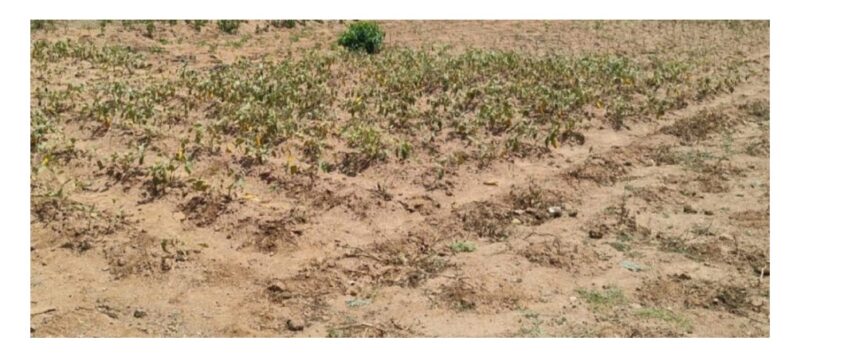Excessive summer heat in India significantly impacts inflation, primarily through its effects on agriculture, energy demand, and overall economic activity. Here are the main ways it drives inflation, supported by facts and figures:
1. Impact on Agriculture Crop Yields- Reduced Crop Yields
: High temperatures, particularly during the crucial growing season, can severely affect crop yields. For example, a study published in the Proceedings of the National Academy of Sciences indicated that for every 1°C increase in temperature, wheat yields in India could decrease by 4-5%.
Heatwaves and Crop Failures: In recent years, extreme heatwaves have led to significant crop failures. For instance, the 2019 heatwave caused substantial damage to crops like wheat and pulses, leading to supply shortages and increased prices.
Food Prices- Rising Prices: Due to reduced agricultural output, prices of essential food items soar. The Reserve Bank of India (RBI) reported that food inflation increased by about 8% in 2021, with a significant portion attributed to heat-induced supply disruptions.- Specific Commodities: Prices of vegetables and fruits, which are particularly sensitive to temperature changes, have seen sharp increases. In 2020, the price of onions, a staple in Indian cuisine, surged by over 100% due to heatwaves and unseasonal rains affecting the crop.
2. Energy Demand and Costs
Increased Energy Consumption- Higher Electricity Demand: Excessive heat drives up the demand for electricity, primarily due to increased use of air conditioning and cooling systems. The Central Electricity Authority reported a 6-8% increase in peak electricity demand during heatwaves.-
Power Supply Strains: The higher demand often leads to power shortages and blackouts, affecting industrial production and leading to increased costs for businesses.
Fuel Prices- Higher Fuel Consumption
The need for irrigation in agriculture increases fuel consumption, particularly diesel, for pumps and generators. This additional demand can drive up fuel prices.-
Global Oil Prices: Higher local demand, combined with global oil price trends, contributes to inflation. For instance, in 2021, rising global oil prices, exacerbated by high local demand during summer, pushed fuel inflation to over 10%.
3. Economic Activity Disrupted Supply Chains- Transportation Costs: Heatwaves can disrupt transportation, affecting the supply chain and increasing logistics costs. Perishable goods are particularly vulnerable, leading to increased spoilage and higher prices.-
Labor Productivity: High temperatures reduce labor productivity, particularly in sectors like construction and outdoor services. A study by the International Labour Organization estimated that India could lose around 5.8% of working hours due to heat stress by 2030, directly impacting economic output and leading to higher costs for services and goods.
4. Overall Inflation Trends- CPI and WPI: The Consumer Price Index (CPI) and Wholesale Price Index (WPI) are both affected. The Ministry of Statistics and Programme Implementation reported that food and energy components, significantly influenced by excessive heat, are major contributors to the overall inflation rate.
Monetary Policy Response: In response to rising inflation, the RBI might increase interest rates, which can slow economic growth but also increase the cost of borrowing, affecting investments and consumption.
Excessive summer heat in India is a significant driver of inflation through its multifaceted impact on agriculture, energy demand, and economic activity. The interplay of reduced crop yields, increased energy costs, disrupted supply chains, and decreased labor productivity creates a complex scenario where prices for essential goods and services rise, leading to broader economic challenges. Addressing these impacts requires coordinated efforts in improving infrastructure, adopting heat-resilient agricultural practices, and enhancing energy efficiency.






